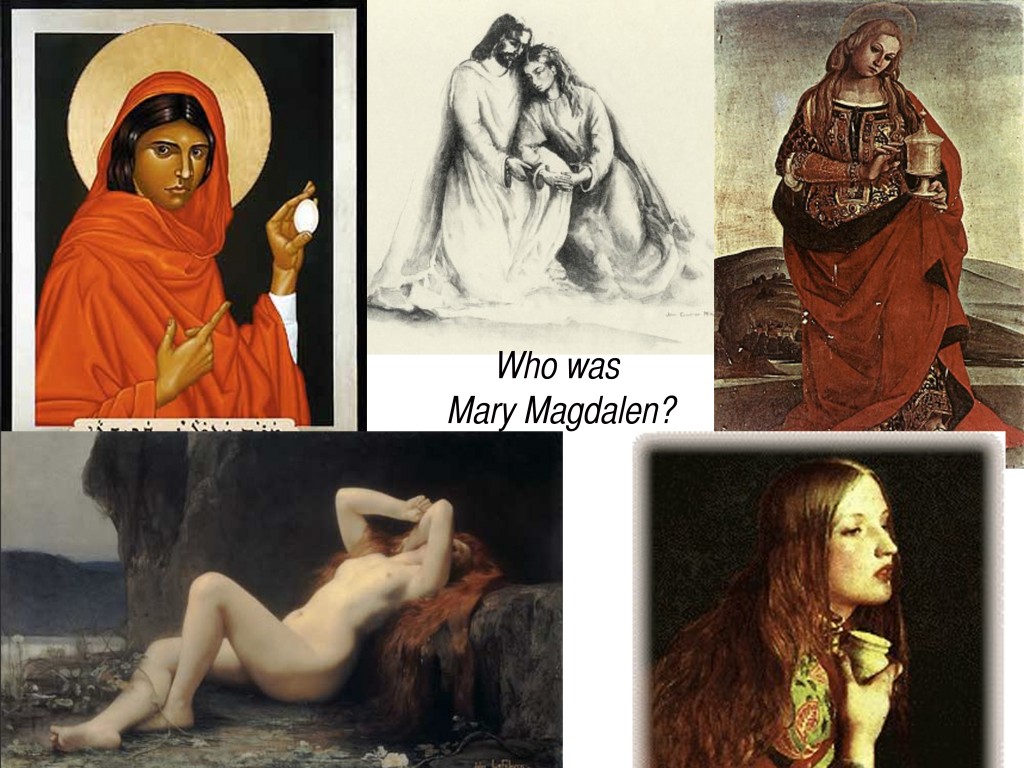I’ve been a catholic for 32 years. Every classroom that I ever received a degree from came with crucifixes on the wall and grace before meals. My parents are from the Philippines, the last country that still does not legally recognize or condone divorce. In grade school, I wrote essays on wanting to be a nun or a missionary in El Salvador and follow the footsteps of Archbishop Oscar Romero. My husband earned one of his masters degrees while attending seminary to be a catholic priest. I love fish fry’s and believe in the power of building community over donuts.
I’m a catholic alright.
I’ve identified as a feminist for about seven years, believed in its core values for 32 years. I performed in the Vagina Monologues, taught a course in gender, race, and difference, and worked in a university women’s center for three years. I write and edit with a grassroots and independent feminist magazine and speak at conferences about media justice, revolutionary practices of storytelling, and US feminists of color. My marriage is built on values like ever-negotiating degrees of communication, respect, compromise, and radical love. I support men and women, transgender women, transgender men, transexual wom/en, and non-identifying and non-conforming persons. My first book project is an anthology of edited works by survivors of sexual violence written and created for other survivors of sexual violence. My mother and I argue about Fox news and politics and then laugh over coffee ice cream while exchanging stories about my 14 mo old son’s latest antics. I counsel and educate, advocate and vote.
Catholic while Feminist.
Catholic and Feminist.
A Catholic Feminist.
A Feminist Catholic.
There’s no better time to reflect on the two identities (although I pretty much reject the notion of “multiple identities” and just see them as ME) than during Lent.
 Ash Wednesday is the beginning a Lent, the holiest time of year for Catholics, as it marks the 40 days before Easter. No matter what is said or taught about Lent, it is a time for nothing else but absolute renewal. Renewal of relationship, renewal of energy, renewal of spirit. This “renewal” thing, though, is usually overshadowed by things in the media like the McDonald fish sandwich deals and Steven Colbert’s humorous mocking of catholicism and Ash Wednesday during last night’s The Colbert Report.
Ash Wednesday is the beginning a Lent, the holiest time of year for Catholics, as it marks the 40 days before Easter. No matter what is said or taught about Lent, it is a time for nothing else but absolute renewal. Renewal of relationship, renewal of energy, renewal of spirit. This “renewal” thing, though, is usually overshadowed by things in the media like the McDonald fish sandwich deals and Steven Colbert’s humorous mocking of catholicism and Ash Wednesday during last night’s The Colbert Report.
It’s hard to focus on the deeper meaning of Lent when you’re gnawing on fried fish sandwiches and dabbing your lips with a napkin to dry up the grease.
Few feminists I know and study provide in-depth reflections on Lent. If there are some who do write on it, they are usually ivy-clad academics in feminist theology who talk in jargon that few lay people would understand. So I feel obligated to self-educate and self-define this holy time of year for myself. I feel one of feminism’s great tools that I have embraced is a wonderful gushing spigot of questions. Many feminists are obsessed with answers and legislation and public policy and conference plenaries and blog posts and articles and book deals and marches. Those things are all fine and serve great purpose because, let’s face it, spirited dialogue needs these things. But, in my head, none of those things really matter if you don’t have the right questions. Questions situate. They point the telescope at just the right angle when you seek clarity. Questions, more than anything, direct your gaze and concentration.
One thing that catholics and feminists do have in common is that some of the most ardent and vocal people in either sector are often the least educated or in touch with the everyday lives of women. Neither the leaders of catholicism nor the leaders of mainstream feminism reflect who I am. Those leaders are often white, have never spent much time building relationships with people and countries outside of the United States, without dependents of any kind, and favor sweeping generalizations in their speeches and homilies as if they speak the truth for everyone. They tend to make polarizing statements in the name of everyone else and the TRUTH. They also talk to me like I’m just like them.
So the question is: Why stay?
Answer: it’s better to crack the walls from the inside than the outside.
It’s better to stay and fight then leave and complain.
It’s better to claim what is rightfully yours – church, identity, spirituality – than to walk away.
It’s better to write your narrative than to ignore your voice.
It’s better to admit you disagree than pretend you don’t care.
It’s better to breathe in the gray than suffocate in black and white.
And, for me, I just don’t walk away. I get the oppression. I get the pissed off feelings. I get it. I’ve had three decades of jaw dropping statements and humiliation and “I can’t believe the Vatican _______ ” kinds of moments. But, giving up catholicism is like giving up my skin color. It’s like giving up my family. It’s like renouncing my mother or shunning my siblings or ignoring the voice of my father. It’s like writing, “I’m giving up being Filipino!” And like many Latin@ theologians argue — simply walking away isn’t what our people do. We stay in the friction. We make movement. We work toward resolution, not abandon the problems.
If I leave, who will ask the questions?
Lent is a time of renewal and you can’t have renewal without coming to grips with what you want to leave behind. That kind of discernment, that kind of active, mindful reflection must be intentional. It must be framed with question.
What do you want to leave behind?
Last night, I participated in Ash Wednesday service and was asked to help distribute ashes. I love participating in any aspect of the liturgy and, smiled, when Nick was asked to distribute ashes beside me. Serving others together as a married couple is one of the most meaningful experiences of my life.
The action is simple. I dip my right thumb into a small bowl of dark ashes and place a cross on the forehead of the person standing one foot from me and proclaim, “Turn away from sin and be faithful to the Gospel.”
Turn away from sin and be faithful to the Gospel.
Eigh —
In terms of rhetoric, I wasn’t impressed by these words. Hardly poetic. Not really moving and I have such complex issues with what defines “sin,” “faithful,” and certainly “gospel.” I told myself,
Get over it. Now isn’t the time for theological argument.
There were over 500 people in the church and my line was overflowing. I was unsteady, thrown by the massive crowd pushing toward me. For the first ten people or so, I couldn’t look them in the eye. The whole thing suddenly unnerved me. Truly, it’s an intimate act to place your hand on someone’s forehead. Try it. Gather faces in your hands and tell me you’re not moved. Let yourself be in a position where people come to you seeking something much greater than you; their eyes opening into yours. Faces of all ages, colors, sizes, texture, ability. Each one extraordinary. Each one indispensable.
The nervousness trembled and then an unexplainable stillness rested over me. My vision narrowed and I just saw faces. Like a human conveyor belt, their faces came one after the other. Hopeful, searching, distracted, downcast, excited, curious, detached, grieved. I saw them. I saw their faces and thought,
People are so beautiful. And good. And they try so damn hard to do their best.
Over the organ and choir, I kept repeating the phrase over and over – maybe 200 times with little pause in between each one – Turn away from sin and be faithful to the gospel.
I was saying the words, but I had no feeling behind them. Then I heard a translation. My own voice in my head.
Stop making destructive decisions.
Go. Live!
Come out of your sadness.
Choose to love.
You are not alone.
Find yourself.
I’m here.
I have no flipping idea where those words came from, but they popped in my head like subtitles at a french cinema. Were these commandments for me or for them, I wondered. I wasn’t sure and then I was sure it didn’t matter.
I felt their spirits.
The experience took me back to my own wedding ceremony when Nick and distributed eucharist and, again, I was overwhelmed by the faces appearing in and out of my eyeline. At my wedding, the faces were all known, all beloved. I compared that day to heaven – a gathering of those we do not want to live without.
Yesterday, though, it was a parade of unrecognizable faces but their beauty was so undeniable I felt embarrassed that I didn’t live more gently with my neighbors. I felt silly that I was so quick to indulge in gossip and share in news of misfortune. I didn’t feel short, but I felt ashamed I didn’t choose to stand taller. In those minutes, I knew there was nothing more important than those faces and coming to that realization of how precious each face was, I knew my face mattered as well.
They matter, therefore, I matter.
In the quiet recess of your mind, do you truly believe in the undeniable sanctity of each person? Of yourself? Your body? Each woman? What if we honored all the baggage that people show up with as forgivable and common? Or –
how would your life change if you saw what I saw last night: God.
And this I can report back — God sure ain’t sexy, but It sure is crazy beautiful.

